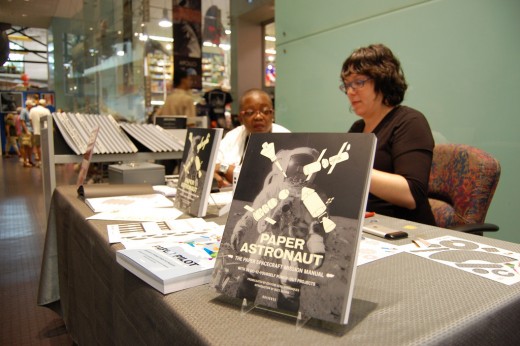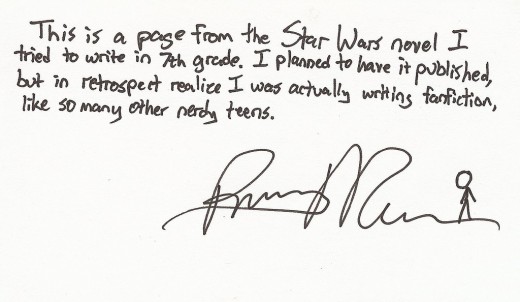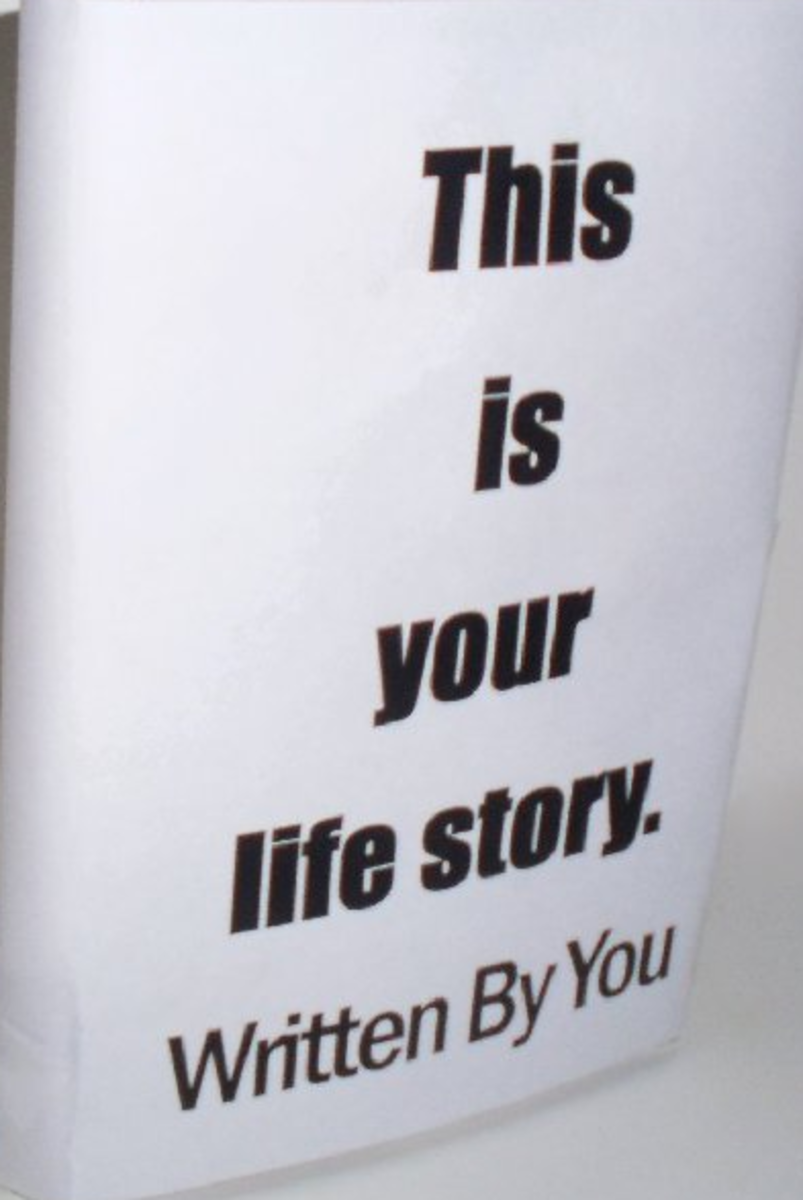5 Ways to Become a Writer
Book signing

Why people become writers
Many people believe they have a flair for writing, and they probably do. Everyone has something to say and a story to tell. They just may lack the basic skills, confidence, and knowledge about how to become a writer.
Writers are able to write because they want to, they try to, and they love to. It doesn’t have to be something that they do for money, fame, or praise. Some may never want anyone else to read what they wrote. Some may only want a small group of people to read it. Some may want the world to know what they have to say. Below are five types of writing that any beginner can attempt in order to build their skills, discover their strengths, and release their inner thoughts in print.
Journaling - Writing for an audience of one

Journaling
Writing is writing, even if you’re just writing for yourself. Journaling can make you feel better after a hard day or if you are going through a difficult time. In most cases, you are the only audience so you can lay everything on the table, not worry about crossing the t's and dotting the i's, and leave your problems on the page.
Journaling also gives you the space to document major life events which can be referred to later if you ever become ambitious enough to write your memoirs. Not only will you be able to map out your life, but you can remember what you were thinking and feeling in those moments, bringing your readers on that journey with you. If you date the pages just right, you can also use them as a type of calendar to refer to when certain events occurred.
Maybe include mementos from trips and keep a type of scrapbook journal, using photos, programs, or souvenirs that can fit within the pages of the book and coincide with entries about the event. Because you are the primary audience, you get to decide the content and format and never have to worry about editing or critiquing it in its raw form.
If nothing else, just keeping notes in a journal can lead to the development of a longer piece. It can also serve as a guide to refer to when you're feeling blocked.
Fan fiction note

Fan fiction
Fan fiction is not the most respected form of writing, but it is a beloved guilty pleasure in the writing community. Many of us have tried our hand at fan fiction, especially in our angst-filled teen years when we craved drama and preferred it to reading the classics.
I’ve filled entire notebooks with fan fiction about everything from my favorite movies to favorite bands. It’s a fun and easy way to learn how to tell stories.
In fan fiction, the rules are relaxed, and characters and worlds already established, allowing for creativity to be the main focus of your work. The entire process becomes experimental. You can mix genres, characters, and worlds. You can stick fictional characters into historical moments and see how they react. You can create alternate endings to your favorite TV shows, or write the long-awaited sequel to your favorite movie.
There’s also an audience for it. The only problem is that it’s a form of plagiarism and shouldn’t be submitted to any formal publications, aside from websites dedicated to the genre. If you're out to write for fun, though, and sharpen your writing skills, this is one way to do it.
Writing for others.

Recommendations and reviews
Being a writer can be beneficial for others as well as yourself. Whenever someone needs a recommendation for a job, to get into college, or plug a business or product, they’ll turn to you. Your writing can be helpful in painting a picture for another person who is considering hiring someone, purchasing a product, or recruiting someone into an organization, especially if you can write clearly and with a level-headed but unique perspective that sells the person or product you are recommending.
Write product reviews on Amazon. If you’re a teacher, write college recommendations for your students. If you liked a new movie, give your in-depth opinion on blogs, forums, and social media.
Learn how to form your opinions into cohesive thoughts that can sway readers and make your ideas matter. It can be great practice and exposure for eventual professional review work.
Blogging with Wordpress

Essays and blogs
If you’re not into writing fiction, poetry, or sharing your life story, essays and blogging could be the way to go. You can write about your favorite topics, share your opinions, and reach an audience who is interested in the same subjects.
Start by guest posting on other blogs. Build a portfolio of publications. Focus on the writing rather than the mechanics, and learn as you go.
You’ll really discover your writing style and learn a lot about the language and perspectives that grab people and what doesn’t. You’ll also learn to take criticism based on the comments you’ll get from readers. Building a tough skin is crucial in the writing world.
Use published work as a base to write your own poems and short stories.

Poetry and short stories
Not everyone has a memoir or full-length book in them, but that doesn’t mean that they can’t write shorter pieces. However, even that can be overwhelming.
When I first learned to write poetry, it felt like it went over my head. I wasn’t used to poetry that didn’t rhyme, and I didn’t know about how to use rhythm and word choice to express feelings and ideas.
Luckily, creative writing classes showed me how to start slow. We weren't scholars dipping our quills into ink and watching Shakespeare-quality stanzas appear on the page. We were fresh out of high school and struggling to find our voices as we shared our writing with the class week after week.
We learned to write found poems by creating a list of disconnected words, collections, and any other inspiration we could find to connect these disjointed words and phrases together to create meaningful messages. We borrowed the formats of poems by D.A. Powell and Wanda Coleman to create our own versions using our own thoughts. By removing the technical aspects of the medium early on, we were able to focus on our own personal thoughts, rhythm, word choice, and inspiration to make writing poetry less intimidating.
For short stories, consult the book, Points of View: An Anthology of Short Stories. In my short story writing classes, we wrote our own stories from these perspectives, using the formats outlined in each chapter. We submitted stories featuring unreliable narrators, stories with multiple perspectives, interior monologues, etc. Having a theme or perspective to go on opens up the mind to situations, characters, and dialogue that has been sitting dormant in your mind.
The point I'm making is that you don’t have to start from scratch. The best work comes from other great work, and there’s no reason to feel intimidated or limited by the written word's long history when creating an original piece. Your perspective and style is what will make the piece unique and original. So, look to others for a base on which to build your writing empire. Then, practice, practice, practice.
Are you a new writer? What do you write, where do you write, and how do you write? Leave your answers in the comments below!








